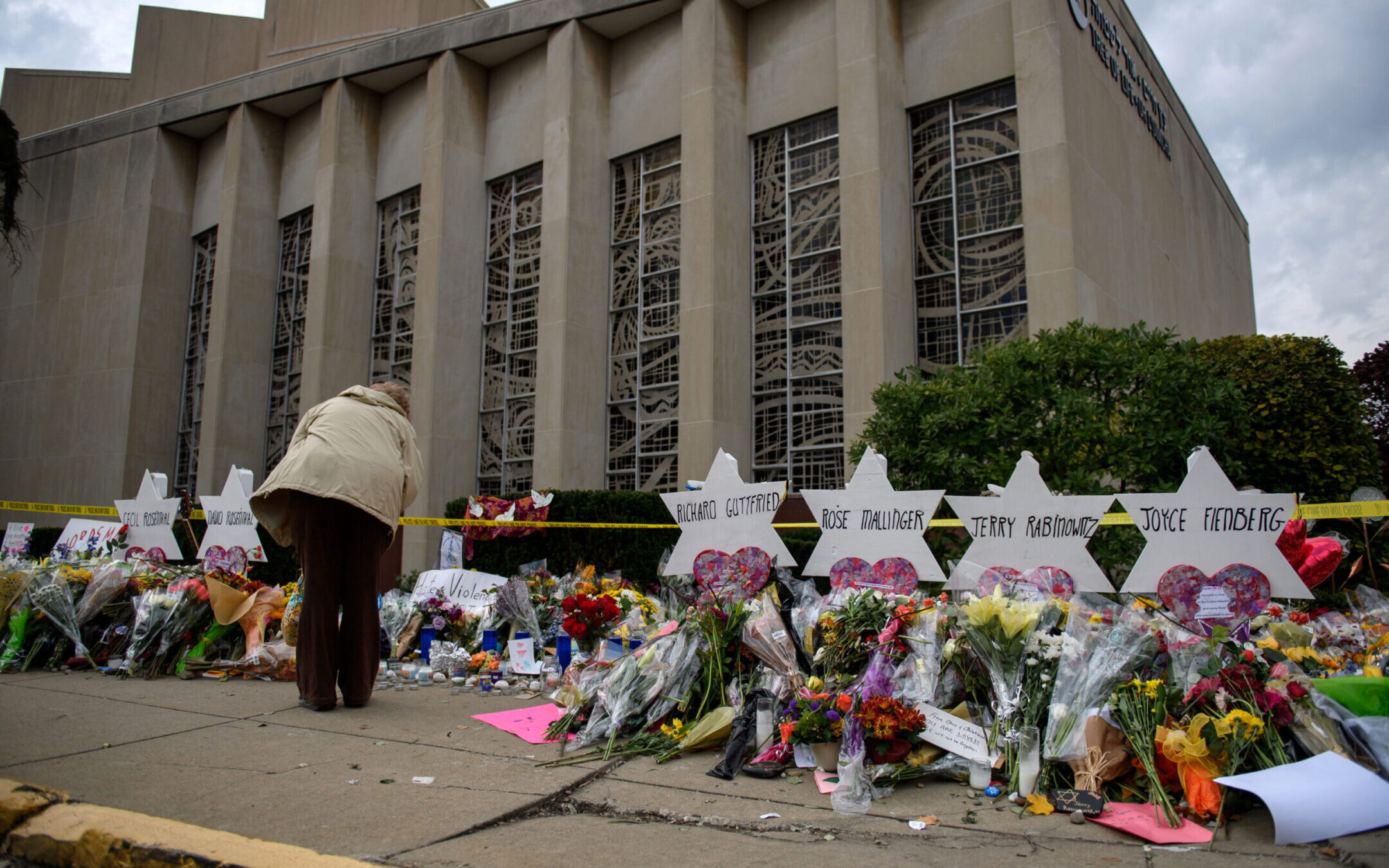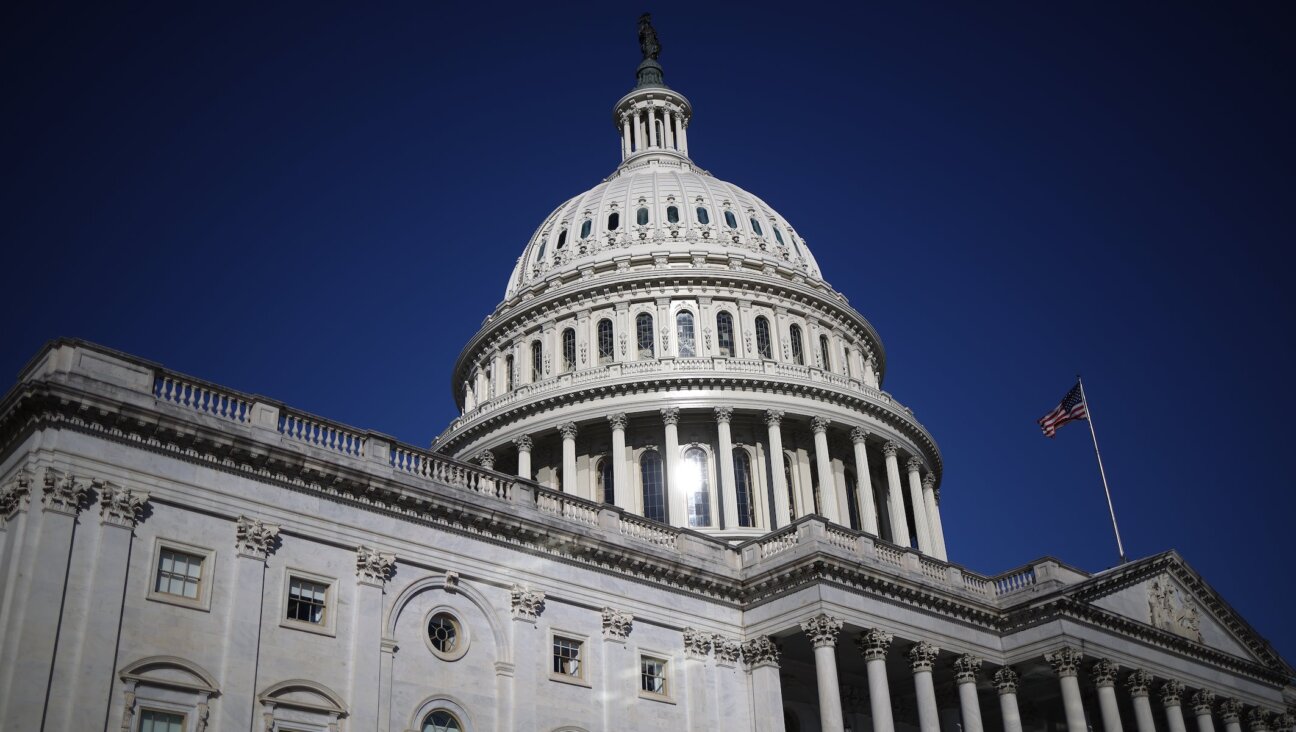Following jury selection, Pittsburgh synagogue shooting trial to begin May 30
The start of the trial, more than four years after the attack took place, has surfaced a mix of emotions for residents of Squirrel Hill

Mourners visit the memorial outside the Tree of Life Synagogue, Oct. 31, 2018 in Pittsburgh, Pennsylvania, four days after 11 Jewish worshippers were killed during services there. The alleged shooter’s trial begins April 24, 2023. (Jeff Swensen/Getty Images)
(JTA) — The trial of the alleged shooter in the Pittsburgh synagogue attack is slated to begin May 30.
Jury selection for the federal trial began last month and is expected to end next week, according to the Pittsburgh Union Progress, a local publication, and the Pittsburgh Jewish Chronicle, which are jointly covering the trial. The defendant, Robert Bowers, is accused of killing 11 worshippers from three congregations who were praying together on Oct. 27. 2018. He faces the death penalty.
Most observers expect the defendant to be convicted, which would result in a third phase of the trial focused on sentencing during which victims’ family members and other community leaders would testify. Some relatives of the massacre’s victims have pushed for Bowers to be executed, while leaders of two of the three congregations have previously advocated against the death penalty.
The start of the trial, more than four years after the attack took place, has surfaced a mix of emotions for residents of Squirrel Hill, the heavily Jewish neighborhood where it occurred. While many hope conviction will bring a sense of closure, there are concerns that the trial will re-traumatize survivors, families of victims and the broader community. In the lead-up to the trial, Shawn Brokos, director of community security for the Jewish Federation of Greater Pittsburgh, has tracked an “uptick in hate speech” online, according to the Associated Press.
The alleged shooter is just the fourth person in Western Pennsylvania to ever face a federal death penalty. None of other three were executed.
JTA and the Pittsburgh Jewish Chronicle will be covering the full Pittsburgh synagogue shooting trial. Can you help us raise $10,000 to support our coverage of this trial and power the future of Jewish journalism?
This article originally appeared on JTA.org.















